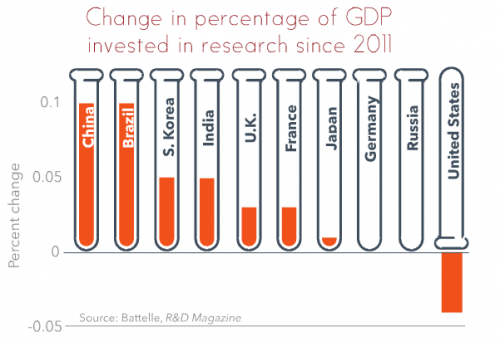The Republican party is appallingly misinformed: there is a Wonk Gap .
But that was then. Modern conservatism has become a sort of cult, very much given to conspiracy theorizing when confronted with inconvenient facts. Liberal policies were supposed to cause hyperinflation, so low measured inflation must reflect statistical fraud; the threat of climate change implies the need for public action, so global warming must be a gigantic scientific hoax. Oh, and Mitt Romney would have won if only he had been a real conservative.
It’s all kind of funny, in a way. Unfortunately, however, this runaway cult controls the House, which gives it immense destructive power — the power, for example, to wreak havoc on the economy by refusing to raise the debt ceiling. And it’s disturbing to realize that this power rests in the hands of men who, thanks to the wonk gap, quite literally have no idea what they’re doing.
There’s another place with a major wonk gap: the media. Television news is unwatchable, and even the major newspapers, like the one that publishes Krugman, are loaded with delusional timewasters and glib liars for conservative policies. How do those clowns get in control of government? Well, one way is that the media are indiscriminate and set up superficial apparatchiks like Friedman and Brooks and Will and whoever as arbiters of rational policy.


